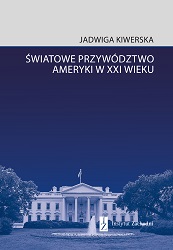
We kindly inform you that, as long as the subject affiliation of our 300.000+ articles is in progress, you might get unsufficient or no results on your third level or second level search. In this case, please broaden your search criteria.

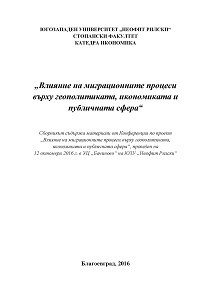
The conference proceedings contain materials from a conference based on a project titled "Impact of the migration processes on the geopolitics, the economics and the public sphere", held on October 12, 2016 at the Conference Center of "Bachinovo" of SWU "Neofit Rilski", Blagoevgrad 2016. The conference was implemented by a research team from the Faculty of Economics at SWU "N. Rilski "- Blagoevgrad".
More...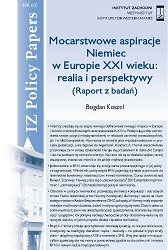
Germany is at the stage of redefining its place in Europe and the world in the complex conditions of the 21st century. It is attempting to strengthen its international position in both transatlantic relations and in the European Union. However, this can be described as competition in the process of globalization, not striving for hegemony. At the same time, the pro-European trend in its foreign policy is being observed in Germany. Among the political elites of the Federal Republic of Germany, slogans are being used to return to the German Sonderweg and to resuscitate the so-called German question. There is an increasing openness in writing about the "de-Europeanization" (De-Europäisierung) of Germany and the "domestication" (Domestizierung) of German policy. Currently, elements of continuity and cautious changes prevail in German policy. The failure of the Constitution for Europe cherished by Germany and efforts to obtain a permanent seat on the UN Security Council have shown that Germany had much less capacity to act than it was generally credited with. A. Merkel's government is trying to sort out the situation, which is not so easy, considering the coalition nature of the government and sometimes - as the eurozone crisis has shown - troublesome cooperation with the FDP, and previously with the SPD. Social pacifism is still strong in the country, there is no question of universal agreement on the goals, role and place of the Federal Republic of Germany in the new international order.
More...
Is NATO, which has been in existence for over 60 years, still the fundamental political and military structure guaranteeing security and stability in Europe - as it has been for decades? To what extent should the Pact be an element and factor of security on a global scale - what do the challenges of today require? Can NATO still operate effectively and be a credible alliance in the current conditions and in the face of new threats? These are some of the questions that should be asked before we begin to develop a new strategic doctrine for the Alliance. This, in turn, must resolve several fundamental issues that are important for making NATO more dynamic and getting it out of a critical juncture.
More...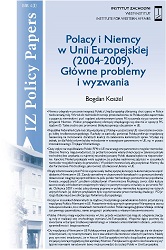
Poland and Germany have common interests in the Union, and above all, they have a significant role to play in implementing the so-called Eastern dimension of the European Union. Together, they should strive to create in Central Europe an area of "freedom, justice and security" outlined in the Amsterdam Treaty. Poland should approach cooperation with Germany in the EU rationally, guided not by immediate benefits or resentment, but with respect for its own interests and those of its partner. It should be borne in mind that in the history of the European Union, there has been no major initiative that has been adopted without the approval of Germany. The policy of sacro egoismo and being guided solely by national interests can easily lead to Poland's isolation in the European Union.
More...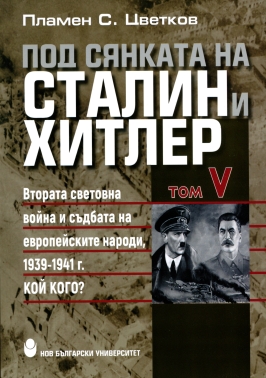
The fifth volume, the last of the Under the shadow of Stalin and Hitler series dedicated to the fate of the European nationas during Stalin's alliance with Hitler, describes the military coup in Belgrade, the preparations for the attack and destruction of Yugoslavia, the occupation regime in Belgium, the surrender of Greece, the bargain for the new boundaries of Southeastern Europe, the anti-British uprising in Iraq, and Stalin's decision to take over the post of a leader of the Soviet Union, the fall of Crete, Hitler's talks with Boris III, Ante Pavelic and Ion Antonescu, and the German Declaration of War against Russia. In the final "Conclusions and lessons", the author shares: "Without the Soviet-Nazi Alliance created by the Nazy-Soviet Pact of August 23, 1939, World War II in Europe would never have erupted. This alliance predetermines the position of forces on a global scale for the next half century. The ultimate winner of World War II is Stalin. The strategic winner, however, is the United States, but democracy will fully realize its victory only with the fall of the Berlin Wall on 9 November 1989 and the end of Communism in Eastern Europe. "
More...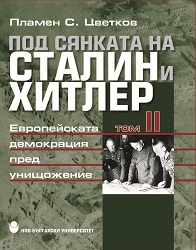
The period after the North or Winter War between Soviet Union and Finland was shorter than a month, but allowed the Soviet-Nazy Alliance to regroup and better plan their strategy of invading Europe. While the public interest was still focused on the situation in Poland, allies freely expanded the front line, whereas Germany seized Denmark, Luxembourg, Belgium and the Netherlands, and the culmination of their campaign - the occupation of Norway and France; and Russia took full control of the Baltics, after crossing over Lithuania. Some European countries to escape worse fate declared neutrality. The paralysis of Europe and the inability of the European governments to react and take adequate measures against this aggression seemed as the end of Europe and democratic ruling. At that period, Winston Churchill became a Prime Minister of the United Kingdom and nobody could envision how significant influence his policy will have and lead to a turnabout on the global political scene.
More...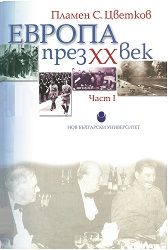
It is hard to perceive modern world without knowing the history of the European countries in the twentieth century to be remembered as the bloodiest century in the history. Most significant events at the time took place on the European continent. Europe has turned over the last hundred years from the cradle of the Judeo-Christian civilization, democracy and humanism into a proving ground for the most sinister ideologies - Russian Communism, German National Socialism and Italian Fascism. With Stalin's victory over Hitler in World War II, Europe not only lost its leading role in human progress, but also remained on the periphery of the Soviet empire. Only the fall of the Berlin Wall and the "gentle revolutions" of the end of 1989 gave Europeans a new chance to unite and take a decent place in world civilization progress, but the problems and challenges Europe is facing can be resolved in a more efficient way, if we know our past better.
More...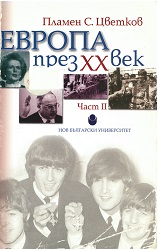
It is hard to perceive modern world without knowing the history of the European countries in the twentieth century to be remembered as the bloodiest century in the history. Most significant events at the time took place on the European continent. Europe has turned over the last hundred years from the cradle of the Judeo-Christian civilization, democracy and humanism into a proving ground for the most sinister ideologies - Russian Communism, German National Socialism and Italian Fascism. With Stalin's victory over Hitler in World War II, Europe not only lost its leading role in human progress, but also remained on the periphery of the Soviet empire. Only the fall of the Berlin Wall and the "gentle revolutions" of the end of 1989 gave Europeans a new chance to unite and take a decent place in world civilization progress, but the problems and challenges Europe is facing can be resolved in a more efficient way, if we know our past better.
More...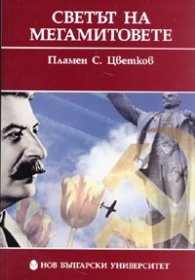
Myth and mythology may be defined as an attempt of the human being to put some order in the way of perceiving the surrounding world that appears as chaos. However, those who want to justify their absolute power by a simple and self-evident explanation can easily manipulate this longing for myths, the more so as myth is also a kind of fairy tale. On the other hand, a lie is never hundred percent untrue: it is a combination of obvious facts with half-truths and with sheer untruths.
More...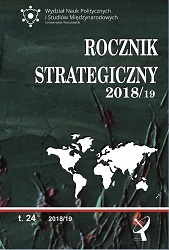
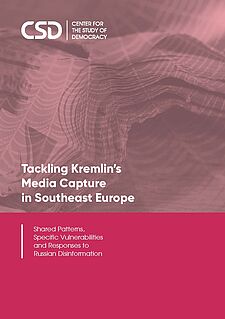
The report explores the scope, means and reach of Russia’s sharp power influence through the phenomenon of media capture in Southeast Europe, including EU members Bulgaria and Croatia as well as EU aspirants Serbia, Bosnia and Herzegovina, Montenegro, North Macedonia, Albania and Kosovo. The comparative assessment uncovers the instruments, channels and narratives of Russian disinformation, the impact of Kremlin messaging on societal perceptions and the increasing overlap of influence tactics between Russia and other authoritarian states operating in the Balkans, particularly China.
More...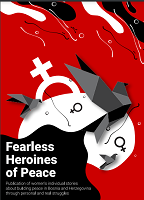
Even after the third decade since the end of the war, certain issues from the social sphere that were not properly addressed in the post-conflict period in Bosnia and Herzegovina leave their mark on the feminist aspects of the development of society, especially in the sphere of transitional justice. On the other hand, with various geopolitical events throughout Europe and the world, Bosnia and Herzegovina found itself in a position where conflicts from other countries are reflected on our society - whether through the participation of security forces from BiH in peacekeeping missions or through the reception of refugees, migrants and asylum seekers from conflict countries and other countries of the world.
More...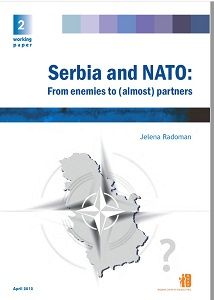
This paper explores the ambivalence of current Serbia – NATO relations. The relationship features alongside Serbia’s ‘exceptionality’ in comparison to the relations of the other Western Balkan countries with the Alliance. In spite of this ‘exceptionality’ Serbia’s security policies have being brought in line with the prevailing security discourse and concept of NATO. The main event that has shaped Serbia – NATO relations is the 1999 bombing campaign of which its consequences and impact on current Serbia – NATO relations are described and analysed here. The central argument is that despite the experience of NATO’s hard power in 1999, Serbia’s security policies have been socialised through the post-1999 engagement with the Alliance as well as the perceived convergence of NATO’s and the European Union’s security policies. This case study contributes to the literature on socialisation by analysing an exceptional case of socialisation which took place without Serbia either being a member of the EU or NATO, or any sort of declared ambition to join the Alliance. It stands in contrast to the already explored examples of socialisation of the Central and East European, Baltic and Balkans states whose security policies have been socialised due to these countries’ open and undisputed ambitions to join both the EU and NATO and their following admittance into both of these organizations.
More...
The book Protection of Human Rights in the Army and the Police combines the papers prepared by the researchers and associates of the Centre for Civil-Military Relations, a Belgrade-seated NGO, within a project on the “Protection of Human Rights in the Army and the Police of the FR of Yugoslavia”. The whole project, including the publishing effort, was implemented with the support of the Westminster Foundation for Democracy, London and Freedom House, Budapest. The project, initially conceived as one-year (2000-2001) interdisciplinary research exercise, was essentially aimed at identifying the degree of respect for human rights in the Yugoslav army and the police. The research also extended to the observance of human rights of citizens under the jurisdiction of the army and/or the police. The main task of the researchers was to look into the (im)balance between the regulative – constitutional and legal – protection of human rights in the army and the police of the FRY and their actual discharge. In order to do that relevant empirical data had to be collected.To this end, in early 2001, the Centre for Public Opinion and Political Research of the Institute for Social Sciences of the University of Belgrade carried out a survey on the situation of human rights and freedoms in the Yugoslav army and the police on a representative sample of 1680, as required for project purposes. The survey findings were presented to the public at a press conference on 12 April 2001 in the Belgrade Media Centre. The conclusive analysis of findings was then incorporated into the present Collection of Papers.
More...
To achieve a fully democratic and secure state, FR Yugoslavia (FRY) must address internal and external security challenges through cooperation with neighboring countries and integration into the Euro-Atlantic Community, particularly NATO and the EU. Following a decade of instability and ideological manipulation, reforms began after Milošević's removal in 2000, signaling support for Euro-Atlantic integration. However, achieving this requires citizens to embrace democratic standards and understand the benefits of such integration.The Center for Civil-Military Relations in Belgrade addressed these issues by organizing the 2001 conference, "Prospects for Security Inclusion of FR Yugoslavia in the Euro-Atlantic Community," supported by NATO and the Geneva Centre for the Democratic Control of Armed Forces. The conference facilitated discussions between domestic and international experts on topics such as NATO’s Partnership for Peace program, FRY's security reform, and the interdependence of Southeastern Europe and the Euro-Atlantic Community.To achieve a fully democratic and secure state, FR Yugoslavia (FRY) must address internal and external security challenges through cooperation with neighboring countries and integration into the Euro-Atlantic Community, particularly NATO and the EU. Following a decade of instability and ideological manipulation, reforms began after Milošević's removal in 2000, signaling support for Euro-Atlantic integration. However, achieving this requires citizens to embrace democratic standards and understand the benefits of such integration. The Center for Civil-Military Relations in Belgrade addressed these issues by organizing the 2001 conference, "Prospects for Security Inclusion of FR Yugoslavia in the Euro-Atlantic Community," supported by NATO and the Geneva Centre for the Democratic Control of Armed Forces. The conference facilitated discussions between domestic and international experts on topics such as NATO’s Partnership for Peace program, FRY's security reform, and the interdependence of Southeastern Europe and the Euro-Atlantic Community.
More...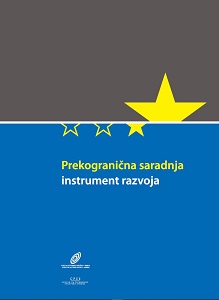
The aim of the project "What brings the European Union - case studies on the effects of Serbia's accession to the European Union in the fields of ecology, agriculture and cross-border cooperation" is to investigate and to indicate to citizens and decision-makers at the national and local level in Serbia whether, in what way, to what extent and under what conditions the processes of europeanization and Serbia's approach to the European Union increase the prospects of Serbia to accelerate its development and make better use of its development potential. Research was carried out in three areas: protection of the human environment, cross-border cooperation and agriculture. Research was done on the examples of specific local communities using the "case study" methodology, which allows one to easily observe the possible effects of europeanization on examples from practice and in a recognizable environment in which Serbian citizens live, face certain problems and try to solve them. The aforementioned three areas were selected for research because they are either spoken of as an essential development resource, regardless of the limits for their use (agriculture), or without a sufficient understanding of their function (cross-border cooperation), or without a clear observation of how and under what conditions they have a limiting or stimulating effect on other development potentials (protection of the human environment) and development resources.
More...
The prEUgovor coalition (Eng. prEUnup) is the first coalition of civil society organisations formed to monitor the implementation of policies relating to the accession negotiations between Serbia and the EU, with an emphasis on Chapters 23 (Judiciary and Fundamental Rights) and 24 (Justice, Freedom and Security) of the acquis. It is comprised of seven civil society organisations with expertise in the thematic areas covered by Chapters 23 and 24. The coalition was formed in 2013, with the mission of proposing measures to foster improvement in the fields relevant for the negotiation process. In doing so, the coalition aims to use the EU integration process to help accomplish substantial progress in the further democratisation of the Serbian society.
More...
Three categories can be discerned in the selection of these texts. The first consists of advocacy for the preservation of the former unified state and for a policy that would not lead us into international isolation and conflicts within the country and with the world. These texts (some published for the first time) represent personal beliefs and directions of engagement, but they are also illustrative of the thoughts and views of the majority of the then leading core in foreign affairs, as well as the moods of a significant part of the middle diplomatic staff.
More...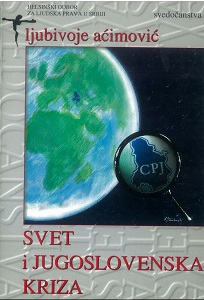
After the dramatic changes in Eastern Europe in 1989 and, on the waves of these changes, the euphoric turn to the OSCE as a factor in building a new order in Europe, which culminated in the Paris Summit in 1990, there was a rapid decline in interest in the OSCE, especially at the beginning of 1991, and its relegation to the background by new dramatic events in the Middle East and in the Soviet Union.
More...